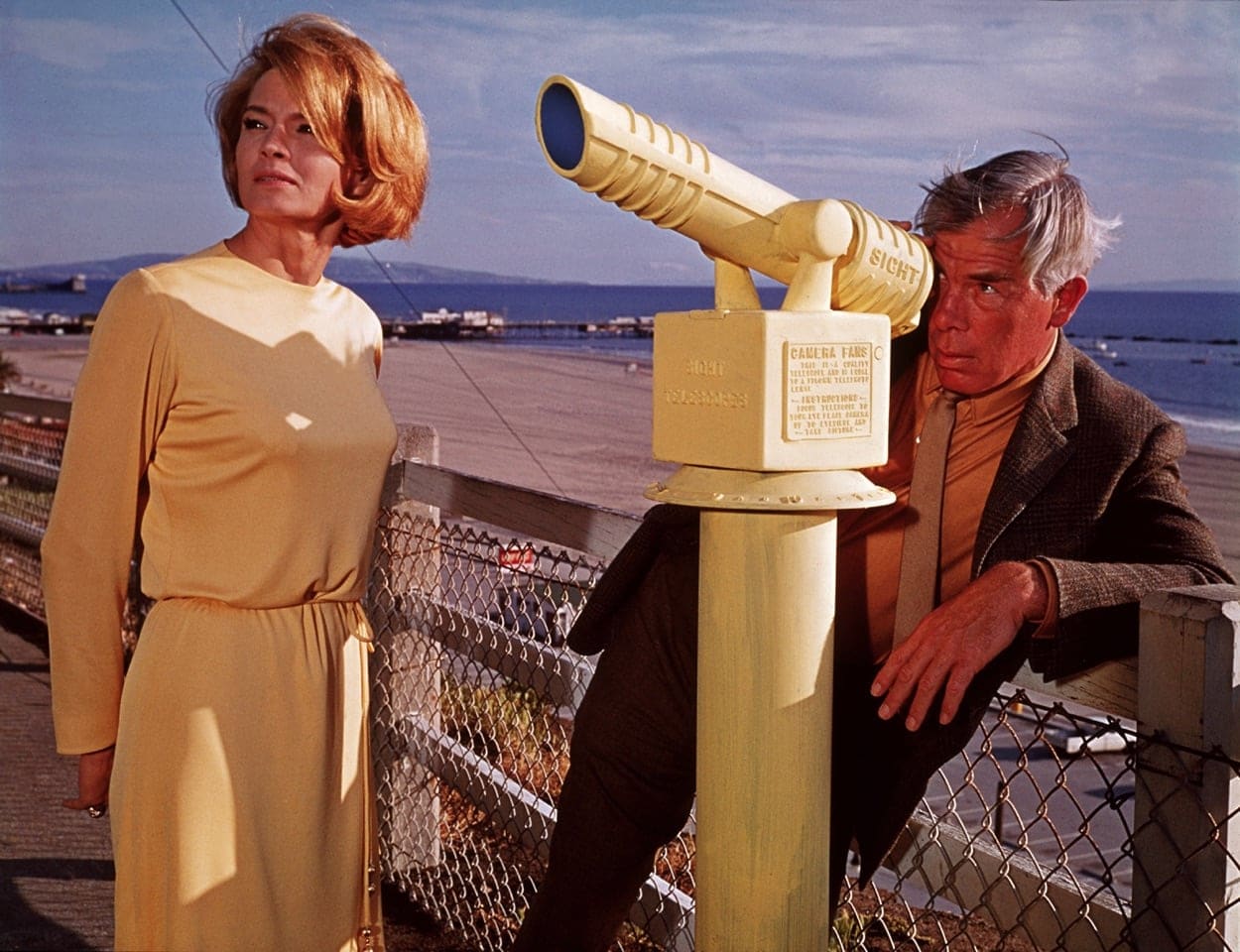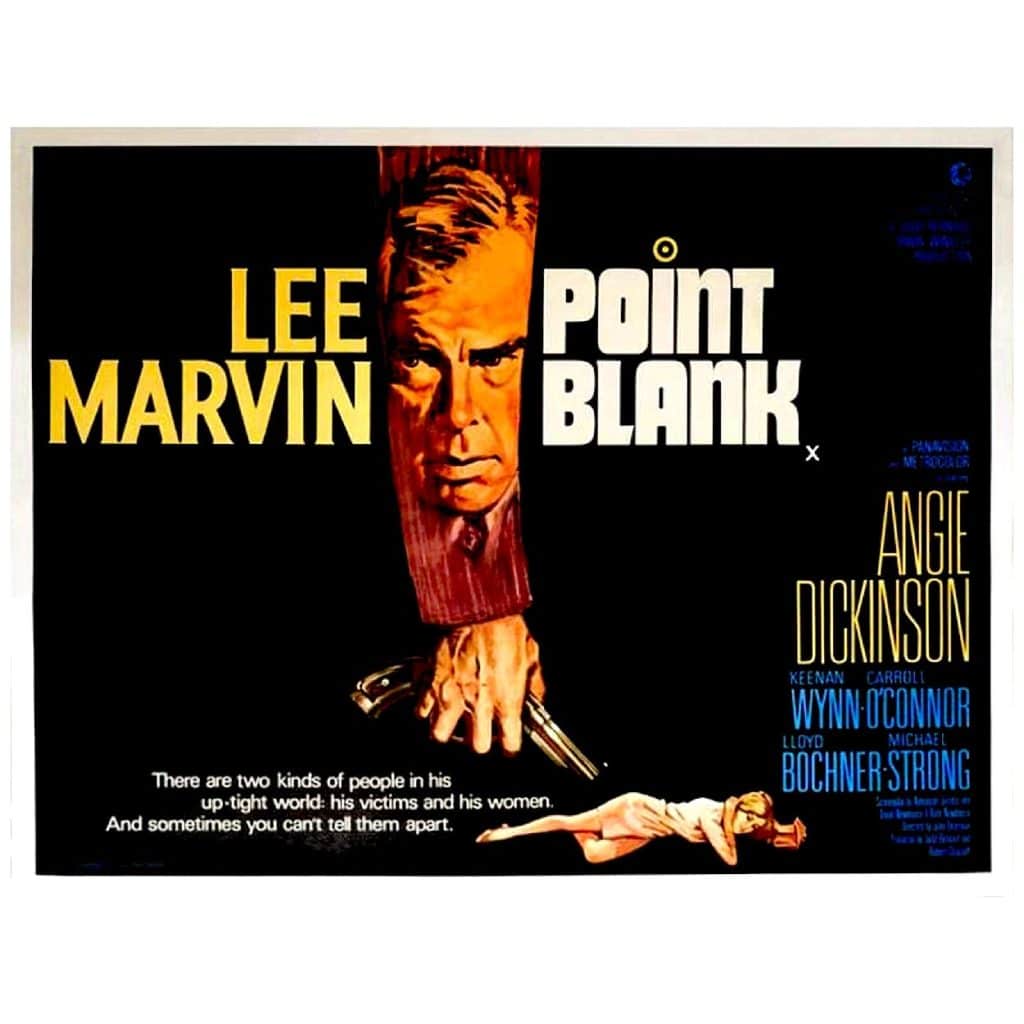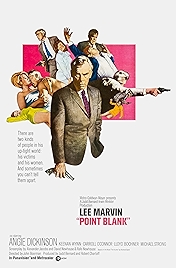Midway between Philip Marlowe and John Wick, Walker, the hero of 1967’s Point Blank is a stylish hero in a film so stylish and influential that its original impact can now only be guessed at, so relentlessly has it been plundered in the ensuing decades. Soderbergh is a fan, as is Tarantino, and so, of course, is Chad Stahelski (of John Wick fame). Mel Gibson and director Brian Helgeland remade it in 1999 as Payback (go for 2006’s Payback: Straight Up, the dirtier director’s cut, if you’re heading that way) but it’s Boorman’s framing and his use of locations, space and sound that have made Point Blank such a moodboard/sourcebook, as well as the cool ruthlessness of its main character, played by Lee Marvin at the top of his game.
We’re on the nursery slopes of the New Hollywood era, with Brit director John Boorman being handed the gig by a studio gambling that this was the way to recapture the lost youth market and hoping that Boorman was the answer to the ever increasing problem of bums on seats – or lack of them. A rave review by critic Pauline Kael of Boorman’s Catch Us If You Can (an ironic take on the 1960s counterculture featuring the pop group the Dave Clark Five) had brought Boorman to the attention of MGM and Lee Marvin, who had signed on to the movie on the understanding that he had total control over it. He gave all that control to the rookie Boorman. If you listen to the commentary track by Boorman and Steven Soderbergh it was clear that Marvin still had a great deal of artistic input, so he wasn’t giving it all away, just using his heft to get the suits off Boorman’s back. Maybe he should get a co-director credit.
Anyhow, the plot. With John Wick simplicity, it’s about a guy called Walker (Marvin) who has been done out of his share of a heist (on Alcatraz, bizarrely) by fellow heister Reese (John Vernon). Shot and left for dead, he’s also lost his woman (Sharon Acker) to Reese into the bargain.
Except Walker isn’t dead. And for the rest of the film it’s a case of him working his way up up a pyramid of vengeance like a destroying angel, hooking up with his girl’s sister, Chris (Angie Dickinson), along the way, trying to find the Mr Big of the organisation – always referred to as The Organization. All Walker wants is his $93,000, not a cent more or less.
There is a school of thought that insists, in Sixth Sense style, that Walker is actually dead. The film can definitely be watched that way, if a further layer of metaphysicality is what you’re after. Boorman’s use of wide spaces, empty locations, sound overlapping from one scene into another and the occasional, and dramatically massive, use of silence makes it a school of thought it’s easy to sign up to. And notice Keenan Wyn as a guy called Yost. He introduces himself as a cop of some sort, but behaves throughout – appearing and disappearing at random – like a guardian angel.
The tug isn’t all in the one direction, which is what makes this film open to interpretation. Johnny Mandel’s soundtrack says neo-noir, for example, while Philip Lathrop’s bright, sharp cinematography says not – he’s shooting Point Blank the same way he did The Pink Panther. The pristine rinky-dink style.
Being 1967, there’s some free love – that three-way between Walker, Vernon and Lynne (Acker). And Boorman hints also at psychedelics in his use of colours here and there – a shattered mess of various bathroom lotions and potions at one point being almost like a hippie oil wheel.
Colour coding is strong throughout, with the palette using signal yellows early on, moving through the warm end of the spectrum and ending up with vivid reds, flashing danger, as the finale comes over the horizon.
Some things are disappointing now, and possibly always were. Though Angie Dickinson is everything she should be as the sister of Lynne, the men Walker uses Lynne to gain access to all cluster at the rentavillain end of the bad-guy spectrum. Maybe there are just too many of them. Lee Marvin, according to the IMDb trivia (not always the most reliable of sources) was most concerned with John Vernon as Reese, who he thought wasn’t up to going mano a mano with him. In fact he’s pretty good, a cut-price Robert Shaw type, for sure, but he does it well. Maybe Marvin was worried about Vernon being a TV actor. Different times.
Point Blank – Watch it/buy it at Amazon
I am an Amazon affiliate
© Steve Morrissey 2022


